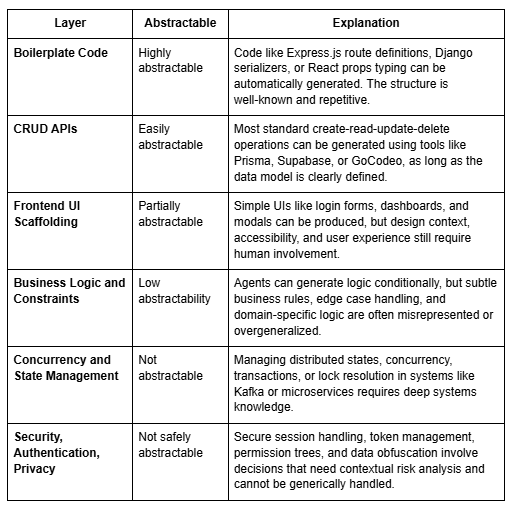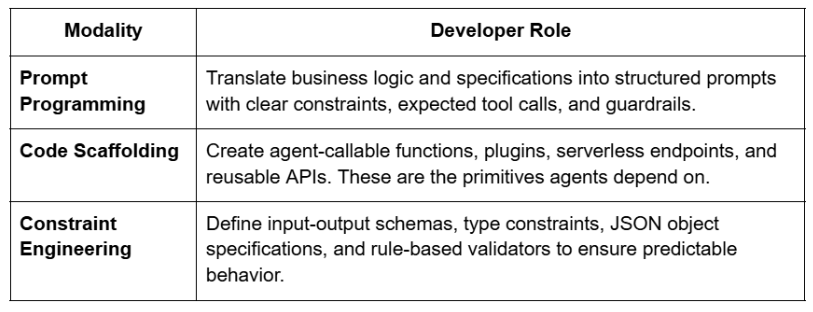
The modern software landscape is undergoing a paradigm shift. With the rise of autonomous AI agents capable of executing multi-step workflows, reasoning across contexts, and interacting with APIs, filesystems, and user-defined tools, we are witnessing a profound redefinition of what programming entails. Developers are now facing a critical question, especially in an agent-first world: does programming still remain a core necessity, or is it being abstracted entirely by intelligent systems?
In this deep technical analysis, we explore the changing dynamics of code construction and logic design in a world where language models, planning agents, and autonomous toolchains increasingly dominate the software lifecycle. We do not argue for or against abstraction, but rather examine how it is being layered, the implications of this change, and what developers must understand to remain indispensable.
The term "agent-first" does not simply describe the presence of AI assistants like Copilot or ChatGPT in your IDE. It reflects a development methodology where software agents are primary execution actors, capable of planning tasks, invoking tools, accessing knowledge, and adapting to changing input conditions without hardcoded, step-wise programming.
In this context, an agent is a software entity with the following traits:
Frameworks like AutoGen, LangGraph, CrewAI, and GoCodeo embody this architecture. Each supports the construction of agents that can be chained, orchestrated, and directed toward specific software outcomes. The key shift is this: you do not just write code for an application, you write systems that guide agents in writing the code for the application.
Programming, at its core, has always been a layered abstraction of machine instructions. From low-level register manipulation in assembly, to the object orientation in C++ or Java, to the declarative ease of Python or SQL, each generation of languages has progressively moved developers away from the hardware and closer to intent articulation.
The current wave of agent-first programming is simply the next level in this abstraction ladder, albeit one with exponential consequences.
Agents can now interpret developer goals from natural language prompts, synthesize code, test it using internal loops, debug errors, and deploy applications. These abstractions not only simplify coding but remove entire categories of programming tasks:
This brings us to an inflection point where programming becomes more about shaping reasoning systems and less about writing instructions line-by-line.
Not all programming responsibilities are equally replaceable. The feasibility of abstraction depends on the task’s determinism, repeatability, and specification clarity.

This abstraction gradient means developers need to be vigilant about what parts of the stack they delegate. High-risk domains must still be handled manually. However, significant speed-up can be achieved by allowing agents to scaffold project skeletons, integrate third-party libraries, or prototype features based on specifications. This hybrid model is the practical form of agent-first coding today.
As abstraction deepens, developers must transition from direct implementers to meta-programmers. This means not writing core logic themselves but designing the systems that guide how that logic is created, evaluated, and refined.
Developers now:
In traditional software engineering, we evolved from writing machine code to writing compilers. Similarly, in an agent-first system, you are now building the agent compiler, not writing the program directly. You define how the agent interprets your intent, what tools it has access to, and how it measures correctness.
This changes the role of a developer from a syntax producer to a reasoning system architect.
Despite abstractions, there are areas where traditional programming remains indispensable. These are domains where ambiguity is high, stakes are critical, or abstraction layers introduce untraceable failure modes.
These areas form the backbone of every agent’s runtime and operation. Without solid foundational engineering, agents produce fragile or even dangerous outcomes.
When developers over-depend on agents, code can become a black box. Generated logic may include:
In such cases, debugging becomes harder because the developer did not author the logic and lacks intuition into its rationale.
Agent systems are inherently non-deterministic. Multiple runs with the same prompt and tools can result in different outputs depending on:
Without deterministic controls like function schemas, token guards, or static tests, developers risk deploying systems with unpredictable behaviors.
Agents that self-evaluate without grounded metrics often reinforce flawed reasoning. Developers must implement:
This is where frameworks like GoCodeo's Monitor, Critique, Plan (MCP) help close the loop. But the design of these loops still requires traditional programming expertise.
In an agent-first world, programming now spans three key modalities:

This division emphasizes that developers must master prompt logic, tooling interfaces, and evaluation scaffolding in addition to programming syntax.
Yes, programming remains central, but the form and interface of programming have evolved. Rather than being displaced, programming is ascending in complexity, granularity, and responsibility.
Developers who embrace the agent-first paradigm find themselves:
The deeper the abstraction, the more critical it is to understand what lies beneath it. Programming is no longer just code creation, but the design of systems that produce, verify, and adapt code.
The agent-first world is not one of replacement, but of reallocation. Programming has not been made obsolete, it has been repositioned to a higher tier of reasoning, architecture, and verification.
Developers are not losing relevance. Instead, the bar for meaningful contribution is rising. Those who learn to design agent workflows, reason about tool boundaries, and critique autonomous behavior will lead this next generation of software systems.
The only risk is failing to adapt. The future of programming is still programming, just at a different level of the stack.